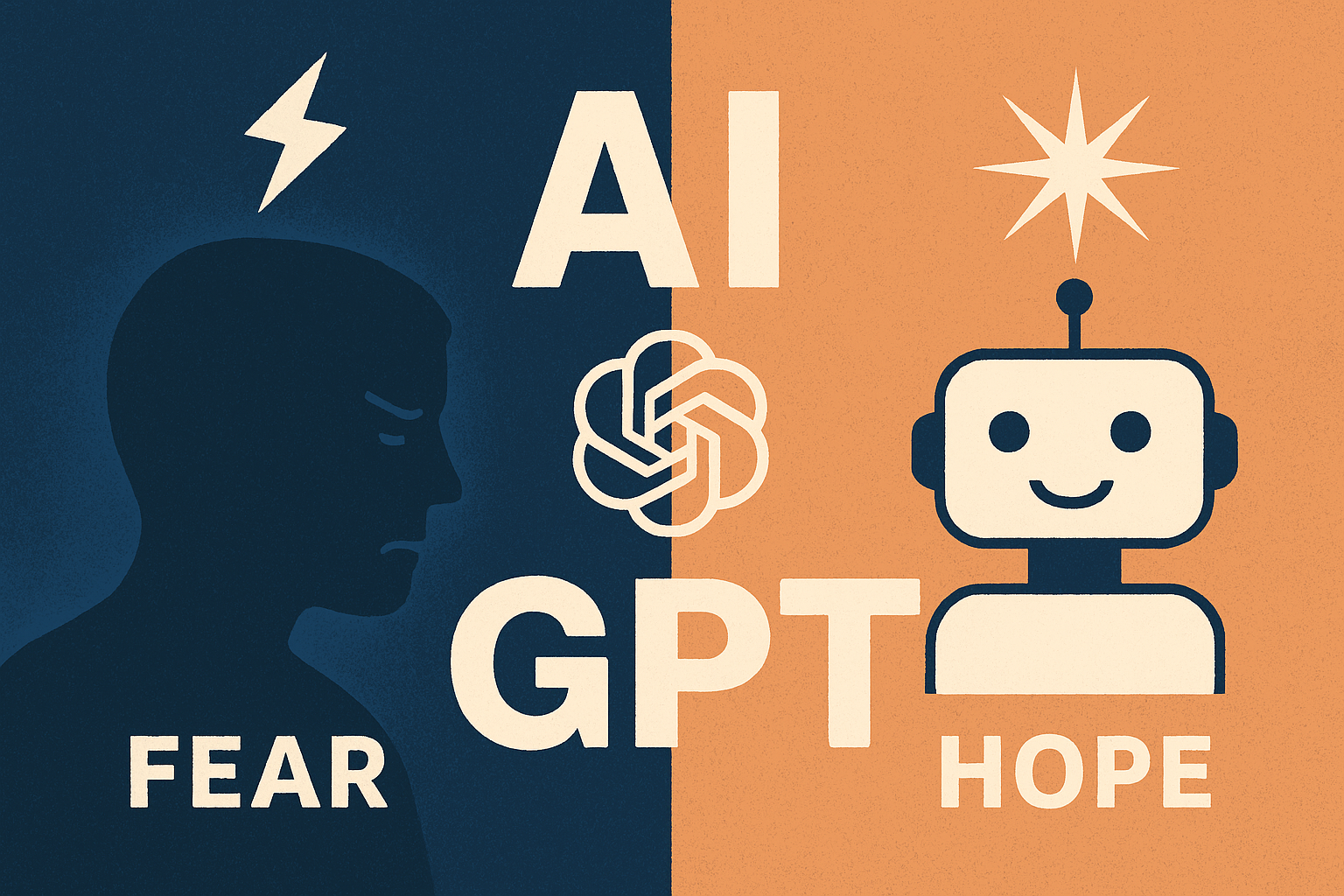The Rise of AI: Hype, Opportunity, and the Next Generation of Work

As a Senior Software Engineer and economics enthusiast working in this very space, here’s how I see the rise of AI tools and the new opportunities they’re creating.
One thing I can say for sure: this technology is a once-in-a-lifetime opportunity. We are lucky to be living through this tech boom. It’s an exciting time for anyone looking for disruption—whether in their career, investments, or ambitions to reach higher.
Right now, I notice two main ways people are looking at the AI hype:
- One those who are loudly creating fear around AI, sometimes exaggerating fears around job losses or market disruption—to generate momentum and drive market interest, often founders or executives of major tech companies who have more to gain with the hype.
- The others who often panic, assuming that AI will immediately take away the jobs so looking for alternative jobs or even looking for ways to survive in that shape of economy which is still long way to go.
This article is for the second group: the truth is, this kind of hype isn’t new. Throughout history, every wave of technology has stirred a mix of exaggeration and panic, yet the real impact usually unfolds slowly, gradually, and in ways we can manage.
I take a quietly optimistic view on this. Sure, it’s a big deal, and yes, it could disrupt markets—but we’ve seen similar waves before, even in my lifetime:
- Dot-com bubble (1998–2002) – I read about it but didn’t experience it firsthand. Many businesses failed, but survivors like Amazon and Google redefined the economy.
- SaaS hype (2010–2012) – Cloud platforms were said to kill custom software. Instead, they expanded the ecosystem.
- Crypto bubble (2013–2015) – Promises of transforming currencies created fear, yet adoption grew selectively.
- No-code tools (around 2010) – Some claimed this would end software engineering, but skilled engineers remained crucial.
- AI hype (2020–present) – The current surge capturing global attention.
Each wave followed the same pattern: excitement, exaggeration, fear—and then gradual integration that reshaped industries in mostly positive ways.
Digging Deeper: Possible Scenarios
1. Worst-case scenario
AI is still early in its development. In a worst-case scenario, repetitive jobs—like basic data entry or routine tasks—might be impacted first. For over a decade, people have feared drivers or laborers being replaced, but we’re far from that reality. The key isn’t panic; it’s preparing to work alongside AI.
Even if AI reaches the level of handling some white-collar work, it struggles to understand real-world context without human guidance. Digital AI may advance quickly, but robotics and hardware development lag behind—catching up could take years.
Some surprisingly resilient roles may include semi-skilled manual work (electricians, painters, bricklayers), creative roles, and caregiving positions—health trainers, yoga instructors, psychologists, nurses—where human presence is irreplaceable.
Even the “absolute worst-case” scenario sparks interesting possibilities: debates about universal basic income, while AI focuses on productivity, could free humans to explore society, care for each other, and pursue creativity.
Imagine traveling the world, experiencing new cultures, and gaining fresh perspectives—doesn’t that sound far more exciting than sitting in a cubicle all day?
Wouldn't that future look exciting!!
2. Best-case scenario
I believe AI will work with us, not replace us. While AI remains largely a black box, learning from data we provide, it still needs human guidance. Working alongside AI, we can achieve extraordinary outcomes—just as past technologies have amplified human capabilities rather than replaced them. AI isn’t just about replacing work; it’s about creating new opportunities. History repeats itself: during the Industrial Revolution, machines replaced some manual labor but gave rise to entirely new industries—railroads, textiles, finance. AI is likely to follow the same pattern: changing the way we work while unlocking possibilities we haven’t even imagined.
Recent research supports this optimism: Goldman Sachs estimates AI may automate up to 300M jobs, but McKinsey predicts it could add up to $4.4 trillion to global GDP, creating new roles along the way. The disruption is real—but so are the opportunities.
The Takeaway
Technology should not create insecurity—it should support people, strengthen society, and enhance how we interact with the world. The goal isn’t to eliminate jobs; it’s to evolve roles, adapt, and explore the new possibilities AI opens up.
💡 I’d love to hear your thoughts: Are you seeing AI as a threat to your career, or as a tool to unlock new opportunities? How are you preparing to work with AI in your field?










